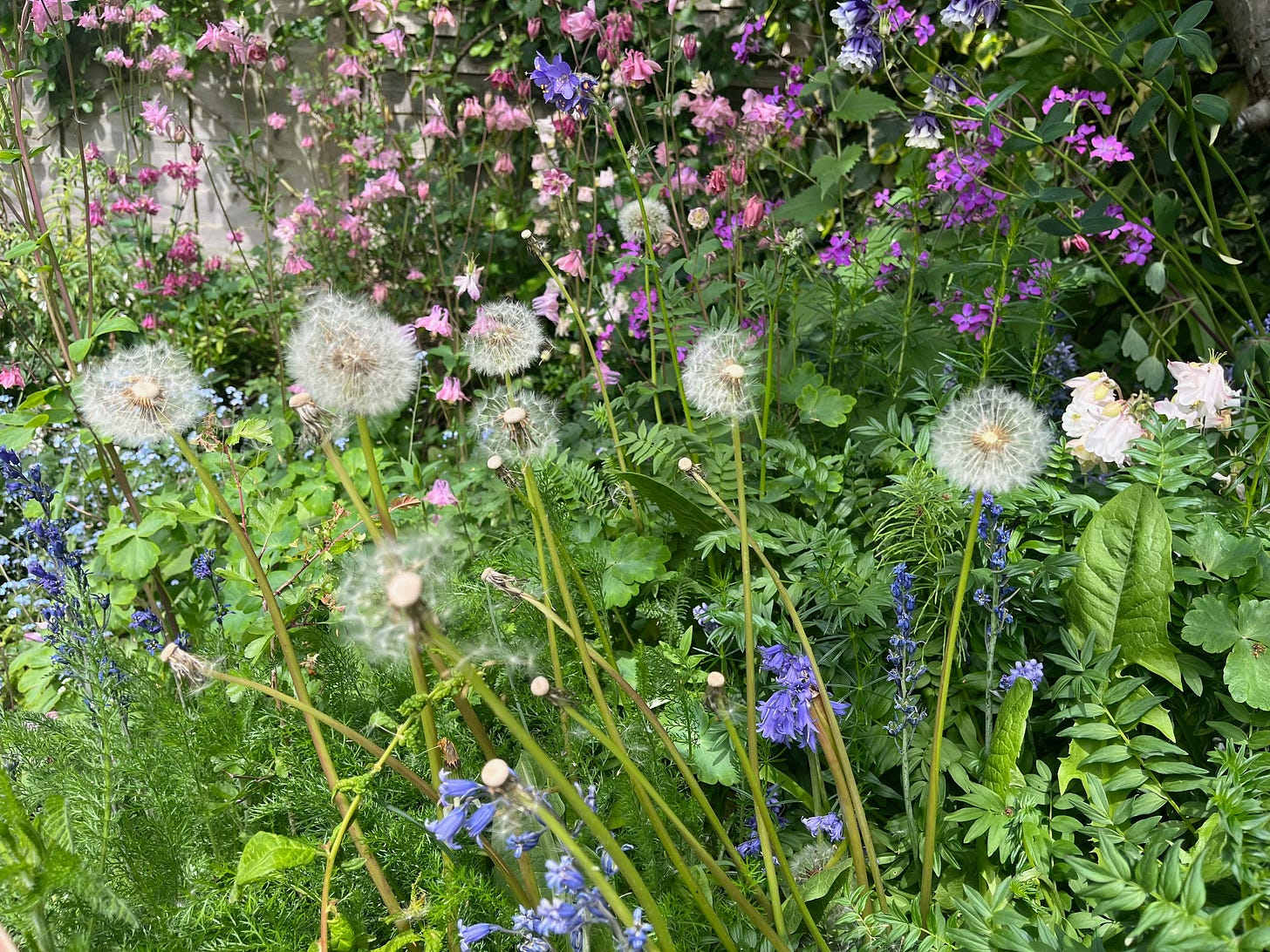The Hard Prune delivers practical tools for dystopian times to your inbox most Fridays.
I know that most of you have things you do regularly to look after yourselves. You go for hikes, take daily photographs, listen to birds, take breaks from your phones, potter with plants, keep gratitude journals, take baths, make time to bake, paint, draw, knit, run, nap, stretch, read, connect, breathe. We’ve become accustomed to describing these kinds of practices as self-care. Today, I want to offer a different way to think about them.
What’s my issue with the term ‘self-care?' I’ve been asking myself that for weeks. It’s not that self-care sounds too selfish; I’m fine with the put-on-your-own-oxygen-mask-first analogy, and I know as a mother that when I’m not okay, nobody else in the family is either. So my issue isn’t that self-care is too focused on the self. My quibble is more that, when we say that the purpose of taking care of ourselves is to allow us to maintain our capacity to take care of others (and not just other people, but also institutions, democracies, ecosystems), we may be missing the point.
Something I’ve learned from Vietnamese Zen monk Thich Nhat Hanh’s books, especially his The Heart of the Buddha’s Teaching, is the concept of store consciousness. Store consciouness, also called seed consciousness, is the idea that each person contains the seeds of every kind of emotional possibility. Within us dwell the possibilities of love and hate, compassion and rejection, open-mindedness and judgment. We can each be joyful, generous, caring, and we can each be resentful, exasperated, greedy, cruel. We are walking seed catalogues, capable of planting anything.
Our task, with our many seeds, is to determine which stay in the cupboard and which go in the garden. And also, because gardens are always full of uninvited seeds that germinate when the gardener’s busy doing other things, we have to decide which plants to tend and which to deprive — which to give sunlight and water, and which to let wilt and shrivel. Practice selective watering, Thich Nhah Hanh says. The most important of these seeds, the ones most deserving of our attention, are seeds of joy, love, compassion and forgiveness.
In my experience, it’s more effective to focus on watering these wholesome seeds than it is to focus on weeding out the unwholesome ones. (Buddhist thought uses terms like wholesome and unwholesome, or skillful and unskillful, rather than good and bad.) This is because when we focus on weeding out the unwanted, it’s all too easy to get caught up in berating ourselves for not managing to fully eradicate anger or impatience or disdain.
Better to do what the Buddha called “changing the peg,” a woodworking skill. When a peg of wood, which is used to join boards instead of nails in traditional carpentry, needs replacing, a carpenter places a new peg on top and uses it to drive the old one out. The unwholesome is replaced with the wholesome. In our metaphorical garden, the desired plant replaces the weed.
When we look after the seeds of joy, love, compassion, forgiveness, and all their related emotions — when we water them, provide the right amount of sun and shade, give them enough space — they grow. As they get bigger and stronger, not only do they make us happier, they start to crowd the other plants out.
So when you are kind to yourself; when you make time for the things you love; when you give yourself room to feel happy in spite of everything; when you forgive yourself for missing a deadline or eating the third brownie or losing your patience or whatever the thing is that you did today; you are taking care of yourself, but you are also doing more than that. You are strengthening your sense of compassion. You are building your ability to experience joy. You are encouraging your inclination to forgive.
These things all have value for their own sake. What we call self-care is not just about giving oneself reprieve in order to continue doing the work. It is the work. And it’s joyous work. An hour carved to nurture wholesome seeds need not be transactional, permitted because it serves a larger purpose. It is the larger purpose, in and of itself.
Postcard from my garden

A note about Notes
If you feel like you’re getting too many emails from Substack, this note is for you. I subscribe to a number of other Substack publications and I’m tired of getting emails every time a writer I subscribe to posts a video or a Note, so I figured out how to make those emails go away.
Notes are a particular annoyance, and I apologise if any of the ones I’ve been posting have been ending up in your inboxes! If you don’t know what I’m talking about, the Substack platform has a feature called Notes, which is like if Twitter and Instagram had a baby who looked a little like LinkedIn. In spite of my pronounced aversion to social media, I’ve been playing around with Notes for the sake of making Substack friends and building the Hard Prune community. You may have noticed.
Here’s what you do to turn off any pesky notifications. Go into the Substack app. (There is a button for this on the right of the bar under the title.) Click on your profile in the top right of your screen. Then click Settings > Notifications > Connections. Toggle off New Notes. While you’re in there, you can toggle off the other things you don’t want Substack cluttering your inbox with too.
I hope this helps!



